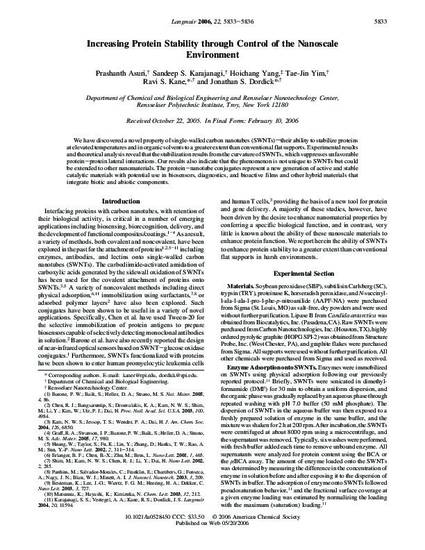
Article
Increasing Protein Stability through Control of the Nanoscale Environment
Bioengineering
Document Type
Article
Publication Date
6-1-2006
Publisher
American Chemical Society
Disciplines
Abstract
We have discovered a novel property of single-walled carbon nanotubes (SWNTs)their ability to stabilize proteins at elevated temperatures and in organic solvents to a greater extent than conventional flat supports. Experimental results and theoretical analysis reveal that the stabilization results from the curvature of SWNTs, which suppresses unfavorable protein−protein lateral interactions. Our results also indicate that the phenomenon is not unique to SWNTs but could be extended to other nanomaterials. The protein−nanotube conjugates represent a new generation of active and stable catalytic materials with potential use in biosensors, diagnostics, and bioactive films and other hybrid materials that integrate biotic and abiotic components.
Citation Information
Asuri, P.; Karajanagi, S.S.; Yang, H.; Yim, T.-J.; Kane, R.S.; Dordick, J.S. Increasing protein
stability through control of the nanoscale environment, Langmuir, 22, 5833-5836 (2006).
